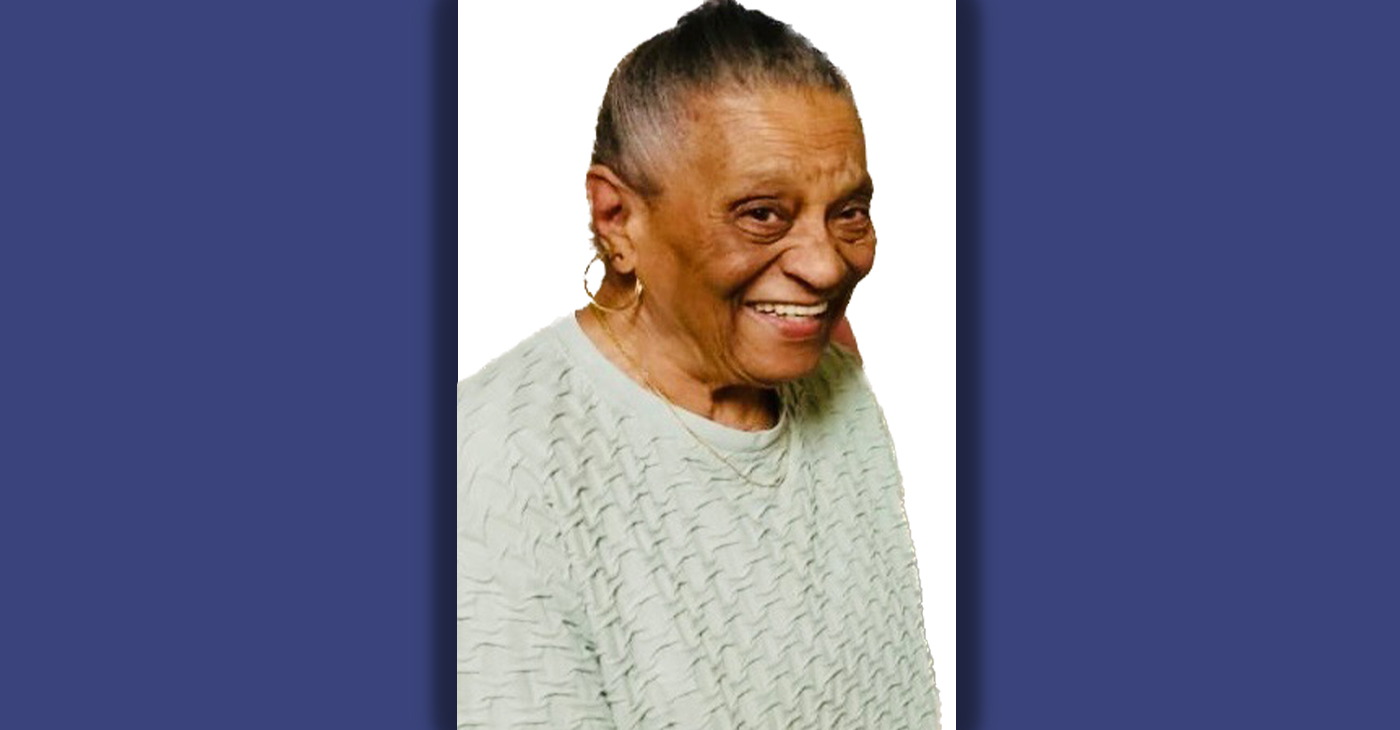Community
Many in Black Communities are Choosing Vaccination
Inequities in health outcomes have always been with us. COVID-19 morbidity and mortality rates among African Americans rival or exceed those in heart disease, diabetes and other illnesses. Blacks sit atop most bad lists and at the bottom of most good lists.

The trail of illness and death left amid the spread of COVID-19 in Black and African American communities should come as no surprise.
Inequities in health outcomes have always been with us. COVID-19 morbidity and mortality rates among African Americans rival or exceed those in heart disease, diabetes and other illnesses. Blacks sit atop most bad lists and at the bottom of most good lists.
COVID-19 vaccinations offer us an opportunity to better balance the scale.
Unfortunately, even with widely available testing, highly effective vaccines, and extraordinary efforts by health departments to educate and encourage people of color to get vaccinated, many Black Californians remain skeptical.
We can only hope that the FDA’s full regulatory approval of the Pfizer vaccine on August 23 for those 16 and up convinces more to get the vaccine. It’s worth noting that emergency-use authorization also remains in place for the Moderna and Johnson & Johnson shots, as well as Pfizer’s for 12- to 15-year-olds – and that all of these vaccines are safe and effective in protecting against COVID-19 and its highly contagious variants.
Eddie Fairchild and Steph Sanders were skeptical about the COVID-19 vaccine but came to understand why vaccination benefits our entire community.
Fairchild, a Sacramento insurance agent, said he knew of research that found Black and white people are often treated differently for the same health conditions leading to poorer health outcomes.
“I was hesitant,” he said. “I was going to wait and see how it panned out with everyone else.
But when a Black friend in the health care field told him he’d opted to get vaccinated, Fairchild asked him why.
“He said, ‘Risk-reward, and the risk is death.’ At that point I didn’t have to ask him what the reward was.”
With a finance degree and a belief that numbers don’t lie, Fairchild looked at the data. He learned that until 2020 the average number of Americans who died each year was about 2.6 million, but in 2020 that figure was 3.4 million. There was only one possible explanation for the death rate surge, he said.
“COVID is absolutely real,” he said, adding that three of his cousins died from the virus. “Taking all that into consideration, I decided that it’s risky to engage in the world and not be vaccinated. It made sense for me to get it.”
Racial gaps in vaccination have thankfully narrowed in recent weeks. But as of September 1, while Black people account for 6% of the state’s population, they account for 6.6% of COVID-19 deaths, which is 11% higher than the statewide rate, according to state department of public health data. Only about 55% of Black people in California have had at least one dose of the vaccine.
Reasons for the discrepancies run the gamut, from conspiracy theories like Black people are getting a less effective vaccine than whites or that the vaccine will eventually be deadly, to challenges in health care access.
Mostly, it’s based on a lack of trust in medical and scientific institutions, which have a long history of racism and mistreating Black people.
So even when it comes to good things like vaccines, which are scientifically proven to be good for the community, it always comes back to trust.
Sanders, a Vallejo school principal, was hesitant because of the Tuskegee syphilis studies in which Black men who had the disease were intentionally not treated with penicillin. And he was dubious that an effective vaccine could be developed so quickly.
In fact, the science and technology enabling development of the COVID-19 vaccines was in development for a more than decade before the virus emerged in 2020. The FDA authorized three vaccines for emergency use after they underwent a rigorous process and were proven through trials to be safe and effective at preventing severe COVID-19, hospitalization, and death.
He decided to get vaccinated when his school board decided last spring to bring students back into classrooms.
Today, he’s a fervent vaccine advocate. He holds “lunch and learn” forums for educators, encouraging vaccination.
“I’m a leader and people are relying on my knowledge,” he said. “I tell them, ‘Don’t make this about you, but about the people you love and care about. It’s about protecting them.’”
There is still a long way to go before Blacks achieve true health equity, but vaccination against a virus that is taking a terrible toll on our communities is a critical step in the right direction.
Activism
WOMEN IMPACTING THE CHURCH AND COMMUNITY
Juanita Matthews, better known as “Sister Teacher,” is a walking Bible scholar. She moved to California from the great state of Arkansas in 1971. Sister Teacher has a passion for teaching. She has been a member of Bible Fellowship Missionary Baptist Church since 1971.

Sister Juanita Matthews
55 Years with Oakland Public School District
The Teacher, Mother, Community Outreach Champion, And Child of God
Juanita Matthews, better known as “Sister Teacher,” is a walking Bible scholar. She moved to California from the great state of Arkansas in 1971. Sister Teacher has a passion for teaching. She has been a member of Bible Fellowship Missionary Baptist Church since 1971. She followed her passion for teaching, and in 1977 became the lead teacher for Adult Class #6. Her motto still today is “Once My Student, Always My Student”.
Beyond her remarkable love for the Lord, Sister Teacher has showcased her love for teaching by working for the Oakland Unified School District for 55 years, all but four of those years spent at Emerson Elementary and Child Development School. She truly cares about her students, making sure they have the tools/supplies needed to learn either at OUSD or Bible Fellowship Missionary Baptist Church.
She’s also had a “Clothes Closet Ministry” for 51 years, making sure her students have sufficient clothing for school. The Clothes Closet Ministry extends past her students, she has been clothing the community for over 50 years as well. She loves the Lord and is a servant on a mission. She is a loving mother to two beautiful children, Sandra and Andre. This is the impact this woman of God has on her church and the community.
Bay Area
Vivian Coit, 98
Vivian Coit, a proud Dallas, Texas native made her way to the great state of California in 1943. She was a mother, grandmother, great-grandmother, and great-great grandmother.

Celebrating A Life Well Lived
Sept. 15, 1925 ~ March 30, 2024
Vivian Coit, a proud Dallas, Texas native made her way to the great state of California in 1943. She was a mother, grandmother, great-grandmother, and great-great grandmother.
In her 98 years, she had various jobs – San Francisco Naval Shipyard, elevator operator, housekeeping, a salesclerk, and supervisor for the United States Postal Service. After 27 years of service with the United States Postal Service, she retired with numerous commendations. She was a lifetime member of the National Council of Negro Women. and a devoted member of the Washington/Lincoln Alumni Association of Dallas, Texas.
On April 20 at 10:00 a.m., a life well-lived will be celebrated at Beebe Memorial Cathedral CME Church, 3900 Telegraph Ave., Oakland, CA under the leadership of Rev. Antoine Shyne.
Commentary
Opinion: Surviving the Earthquake, an Eclipse and “Emil Amok.”
Last Friday, a 4.8 magnitude earthquake shook New York City, reported as the “biggest earthquake with an epicenter in the NYC area since 1884” when a 5.2 quake hit. A bit bigger. The last quake similar to Friday’s was a 4.9 in 1783.Alexander Hamilton felt it — 241 years ago. That’s why New Yorkers were freaking out on Friday. They were in the room where it happens.

By Emil Guillermo
I’m a Northern Californian in New York City for the next few weeks, doing my one-man show, “Emil Amok, Lost NPR Host, Wiley Filipino, Vegan Transdad.”
I must like performing in the wake of Mother Nature.
Last Friday, a 4.8 magnitude earthquake shook New York City, reported as the “biggest earthquake with an epicenter in the NYC area since 1884” when a 5.2 quake hit. A bit bigger. The last quake similar to Friday’s was a 4.9 in 1783.
Alexander Hamilton felt it — 241 years ago.
That’s why New Yorkers were freaking out on Friday. They were in the room where it happens.
And it just doesn’t happen that often.
Beyonce singing country music happens more frequently.
When I felt New York shake last week, it reminded me of a time in a San Francisco TV newsroom when editors fretted about a lack of news an hour before showtime.
Then the office carpeting moved for a good ten seconds, and the news gods gave us our lead story.
On Friday when it happened in NYC, I noticed the lines in the carpeting in my room wiggling. But I thought it was from a raucous hotel worker vacuuming nearby.
I didn’t even think earthquake. In New York?
I just went about my business as if nothing had happened. After living near fault lines all my life, I was taking things for granted.
Considering the age of structures in New York, I should have been even more concerned about falling objects inside (shelves, stuff on walls) and outside buildings (signs, scaffolding), fire hazards from possible gas leaks, and then I should have looked for others on my floor and in the hotel lobby to confirm or aid or tell stories.
Of course, as a Californian who has lived through and covered quakes in the 4 to 6 magnitude range, I tried to calm down any traumatized New Yorker I encountered by taking full responsibility for bringing in the quake from the Bay Area.
I reassured them things would be all right, and then let them know that 4.8s are nothing.
And then I invited them to my consoling post-Earthquake performance of “Emil Amok, Lost NPR Host…”
It was the night of the eclipse.
ECLIPSING THE ECLIPSE
In New York City, the eclipse was about 90 percent visible. Good enough for me. Though a full solar eclipse is a celestial rarity, blockages of any sort aren’t generally celebrated. My one-man play is about growing up with the eclipsed history of American Filipinos and how I struggle to unblock all that.
For example, did you know the first Filipinos actually arrived to what is now California in 1587? That’s 33 years before the Pilgrims arrived in America on the other coast, but few know the Filipino history which has been totally eclipsed.
I was in Battery Park sitting on a bench and there was a sense of community as people all came to look up. A young woman sitting next to me had a filter for a cell phone camera. We began talking and she let me use it. That filter enabled me to take a picture of the main event with my iPhone.
For helping me see, I invited her and her boyfriend to come see my show.
Coincidentally, she was from Plymouth, Massachusetts, near the rock that says the year the Pilgrims landed in 1620.
In my show she learned the truth. The Pilgrims were second.
History unblocked. But it took a solar eclipse.
Next one in 2044? We have a lot more unblocking to do.
If you’re in New York come see my show, Sat. April 13th, 5:20 pm Eastern; Fri. April 19, 8:10 pm Eastern; and Sun. April 21st 5:20 pm Eastern.
You can also livestream the show. Get tickets at www.amok.com/tickets
About the Author
Emil Guillermo is a journalist and commentator. He does a mini-talk show on YouTube.com/@emilamok1. He wishes all his readers a Happy Easter!
-

 Activism4 weeks ago
Activism4 weeks agoOakland Post: Week of March 20 – 26, 2024
-

 #NNPA BlackPress3 weeks ago
#NNPA BlackPress3 weeks agoCOMMENTARY: D.C. Crime Bill Fails to Address Root Causes of Violence and Incarceration
-

 #NNPA BlackPress3 weeks ago
#NNPA BlackPress3 weeks agoMayor, City Council President React to May 31 Closing of Birmingham-Southern College
-

 #NNPA BlackPress3 weeks ago
#NNPA BlackPress3 weeks agoFrom Raids to Revelations: The Dark Turn in Sean ‘Diddy’ Combs’ Saga
-

 #NNPA BlackPress3 weeks ago
#NNPA BlackPress3 weeks agoCOMMENTARY: Lady Day and The Lights!
-

 #NNPA BlackPress3 weeks ago
#NNPA BlackPress3 weeks agoBaltimore Key Bridge Catastrophe: A City’s Heartbreak and a Nation’s Alarm
-

 #NNPA BlackPress3 weeks ago
#NNPA BlackPress3 weeks agoBaltimore’s Key Bridge Struck by Ship, Collapses into Water
-

 Activism3 weeks ago
Activism3 weeks agoOakland Post: Week of March 27 – April 2, 2024












































